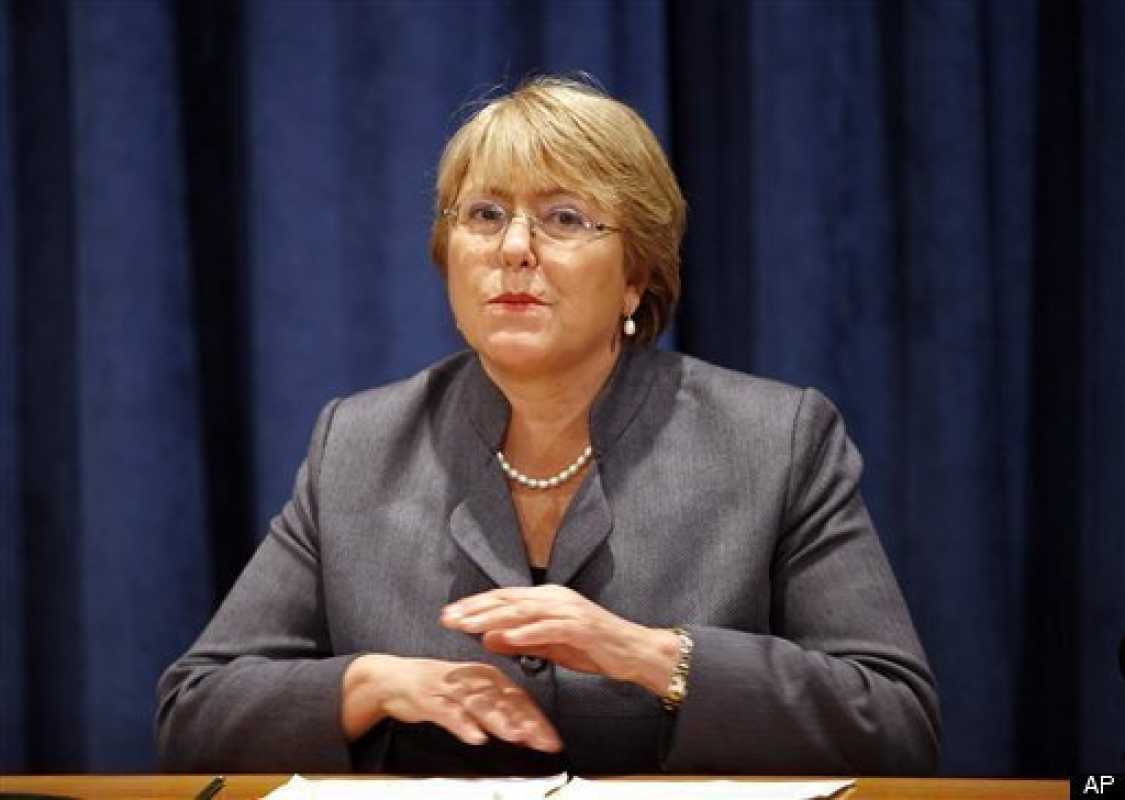People
Michelle Bachelet: A Political Trailblazer and Human Rights Advocate

Table of Contents
- Introduction
- Early Life and Education
- Political Career
- Presidency of Chile
- United Nations High Commissioner for Human Rights
- Key Achievements
- Key Takeaway
Introduction
Michelle Bachelet is a renowned Chilean politician and human rights advocate. She has served as the President of Chile and is currently the United Nations High Commissioner for Human Rights. Bachelet has made significant contributions to her country and the international community, fighting for social justice and equality.
Early Life and Education
Born on September 29, 1951, in Santiago, Chile, Michelle Bachelet Jeria belonged to a politically active family. Her father, Alberto Bachelet, was an air force general who opposed the dictatorship of Augusto Pinochet. Unfortunately, he suffered persecution and died in captivity.
Bachelet pursued her education at the University of Chile, studying medicine and specializing in pediatrics. During her time at university, she actively engaged in student movements and joined Socialist Youth. Her experiences shaped her political ideology and commitment to social causes.
Political Career
Bachelet’s political career took off when she joined the Socialist Party of Chile. She became involved in advocacy work for human rights, gender equality, and social reforms. In 2000, she was appointed as the Minister of Health by President Ricardo Lagos. Bachelet implemented significant healthcare reforms, focusing on improving access and quality of healthcare for all Chileans.
In 2006, Michelle Bachelet made history by becoming the first female President of Chile. During her presidency, she prioritized social policies aimed at reducing poverty and addressing inequality. Bachelet also championed gender equity and introduced measures to combat discrimination against women.
Presidency of Chile
As President, Bachelet’s administration focused on improving education, healthcare, and social welfare systems. She launched a comprehensive education reform program to enhance equal opportunities and access to quality education. Additionally, she implemented social protection measures to alleviate poverty and promote social inclusion.
Bachelet promoted dialogue and reconciliation by addressing the human rights violations committed during the Pinochet regime. She established the Museum of Memory and Human Rights to honor the victims and ensure that history is not forgotten.
During her first term as President, Bachelet faced various challenges, including natural disasters and social unrest. However, her leadership and commitment to social progress gained her significant popularity among the Chilean population.
United Nations High Commissioner for Human Rights
After completing her first presidential term, Bachelet was appointed as the Executive Director of UN Women in 2010. In this role, she advocated for gender equality and women’s empowerment on a global scale.
In 2014, Bachelet was re-elected as the President of Chile, serving a second term. However, her presidency was cut short when she was appointed as the United Nations High Commissioner for Human Rights in 2018. In this role, Bachelet continues to champion human rights, advocating for the rights of vulnerable populations and holding governments accountable for their actions.
Key Achievements
Throughout her career, Michelle Bachelet has achieved numerous accomplishments:
- Pioneer for women’s rights: Bachelet shattered gender barriers by becoming Chile’s first female President.
- Social reform: During her presidency, Bachelet implemented significant social reforms, focusing on education, healthcare, and poverty reduction.
- Champion of human rights: As the United Nations High Commissioner for Human Rights, she continues to advocate for the rights of individuals worldwide.
Key Takeaway
Michelle Bachelet is a trailblazer in politics and a strong advocate for human rights. Her commitment to improving social welfare, gender equality, and access to education and healthcare has left a lasting impact on Chile and the international community.
Throughout her career, she has demonstrated that passionate leadership and a deep sense of social justice can create significant positive change.
Frequently Asked Questions
Q: How did Michelle Bachelet contribute to human rights?
A: Michelle Bachelet has been a strong advocate for human rights throughout her political career. As the United Nations High Commissioner for Human Rights, she works to promote and protect human rights internationally, holding governments accountable for their actions.
Q: What were some notable social reforms implemented during Bachelet’s presidency?
A: During her presidency, Bachelet implemented significant social reforms, including a comprehensive education reform program, improved access to healthcare, and social protection measures to combat poverty and inequality.
Q: What is Michelle Bachelet’s role as the United Nations High Commissioner for Human Rights?
A: As the United Nations High Commissioner for Human Rights, Bachelet is responsible for promoting and protecting human rights globally. She advocates for the rights of individuals, particularly vulnerable populations, and monitors human rights situations in different countries, offering guidance and support to governments to improve their human rights records.












